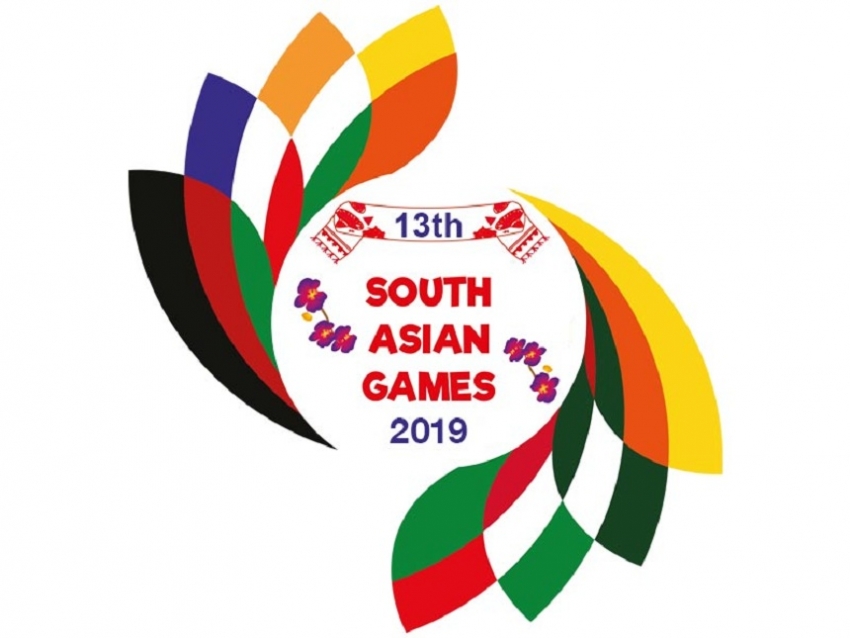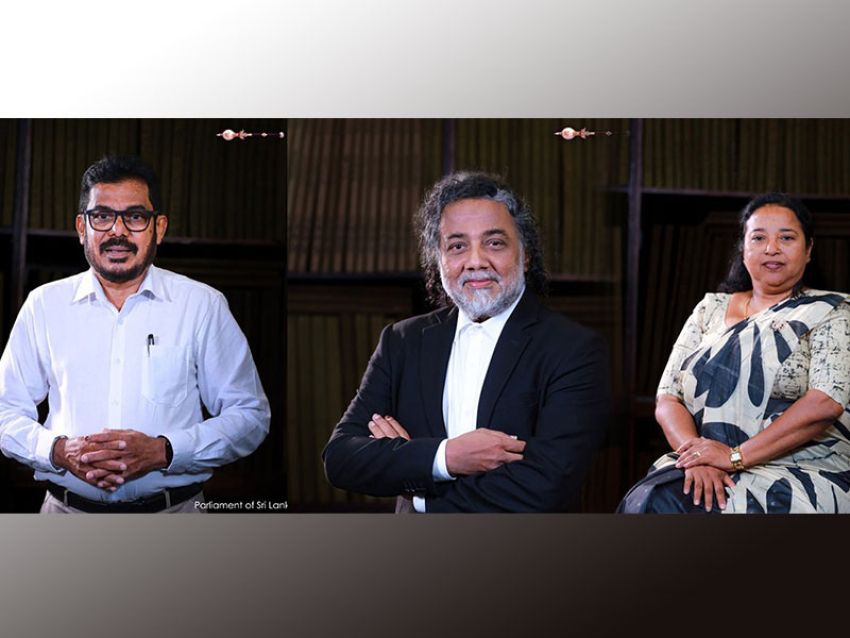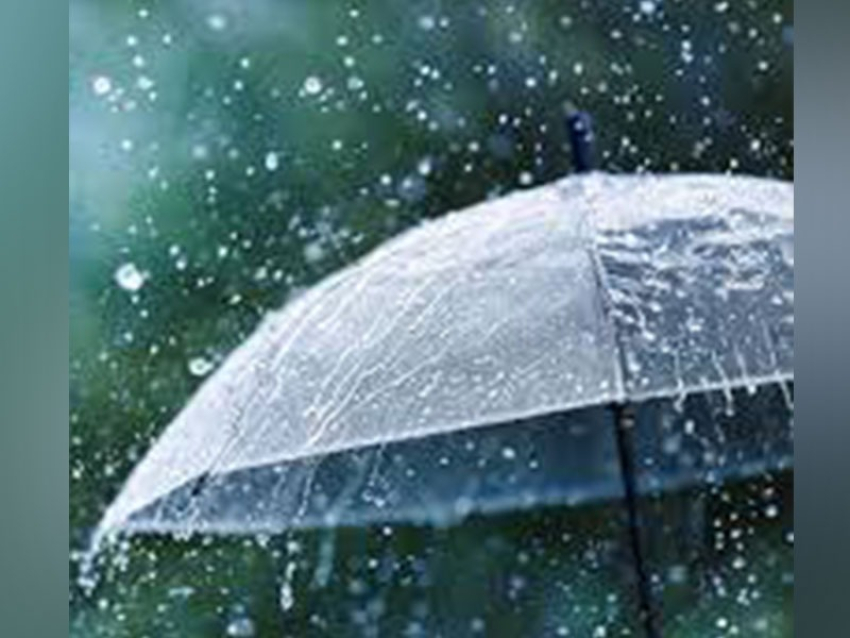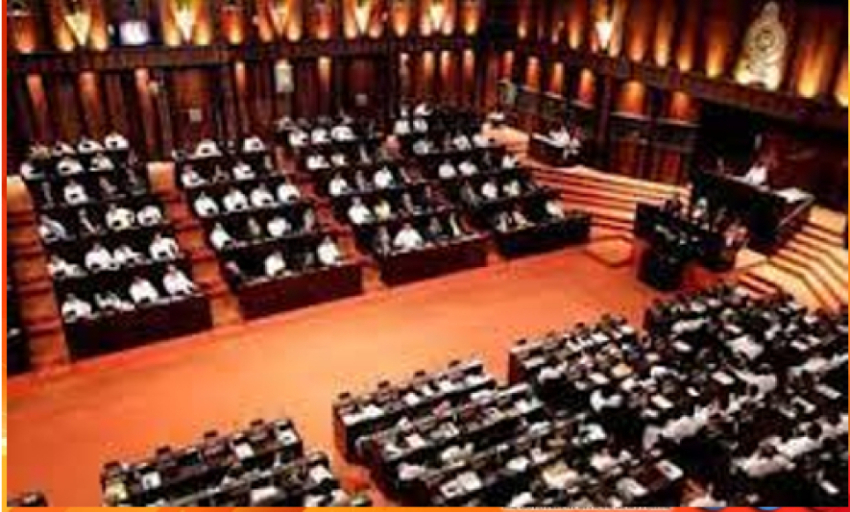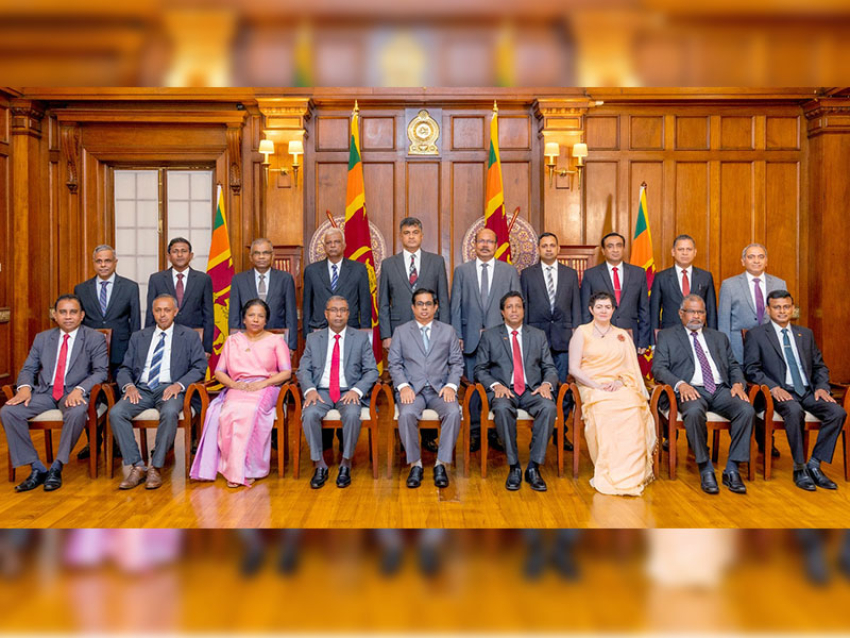Sri Lanka was most successful in swimming and athletics, while three other sports — cycling, weightlifting and wushu — too had the honour of winning gold medals. In swimming Sri Lanka won 12 gold medals, 16 silvers and 11 bronze medals while in athletics the tally was nine gold, 11 silver and 17 bronze medals. Both sports alone accounted for 76 medals out of Sri Lanka’s final medal’s tally.
As Sri Lanka gear up for the 13th installment of the South Asian Games, which will be officially declared open in seven days in Kathmandu, Nepal, the island nation will pin hopes on its athletes to rake up more medals than they claimed in 2016.In the 2016 South Asian Games (SAG) held in Guwahati and Shillong in India, Sri Lanka fielded 484 athletes in 23 sports and finished off second in the medals tally with a total of 186. Among them were 25 gold, 63 silver and 98 bronze medals — a success rate of above 38 percent.
Sri Lanka was most successful in swimming and athletics, while three other sports — cycling, weightlifting and wushu — too had the honour of winning gold medals. In swimming Sri Lanka won 12 gold medals, 16 silvers and 11 bronze medals while in athletics the tally was nine gold, 11 silver and 17 bronze medals. Both sports alone accounted for 76 medals out of Sri Lanka’s final medal’s tally.
Interestingly seven of the 12 gold medals in swimming were won by Matthew Abeysinghe, who went on to better the record established by the legendary Julian Bolling in 1991, Colombo who won six gold medals. Abeysinghe now holds Bolling’s record of highest number of gold medals won by a Sri Lankan at a single South Asian Games. He won them in the 100m Freestyle, 50m Freestyle, 200m Freestyle, 100m Butterfly, 200m Individual Medley, 400m Individual Medley and as one-fourth of the Men’s 4x100m Freestyle Relay alongside Cherantha de Silva, Kyle Abeysinghe and Shehan de Silva.
The remaining five gold medals were won by Kimiko Raheem, who became the Sri Lankan woman athlete to win the highest number of medals at a South Asian Games. Her gold medals came in 50m Freestyle, 100m Freestyle, 50m Backstroke, 100m Backstroke and 200m Backstroke events. However, both Matthew Abeysinghe and Kimiko Raheem will not be turning out for Sri Lanka in Kathmandu, due to various reasons.
Out of the nine gold medals Sri Lanka won in athletics, seven were in track events while remaining two were jump events. Sri Lanka’s flag-bearer in the 2016 SAG, Manjula Kumara, claimed his only gold medal in the Men’s High Jump event, while Ishara Sandaruwan won a gold in the Men’s Pole Vault event.
Among the five track events that were productive for Sri Lanka were the Men’s 100m, where sprinter Himasha Eshan stamped his class, while teaming up to claim his second gold in the Men’s 4x200m Relay. Suranjaya de Silva won a gold in the Men’s 200m while Indunil Herath claimed a gold in the Men’s 800m. Rumeshika Rathnayake won the gold medal in Women’s 100m as Nimali Liyanaarachchi claimed her gold in the Women’s 800m. Sri Lanka Women’s 4x100m team won the gold medal, outsmarting the mighty Indians.
Sri Lanka Men's 4x100m team won a gold medal, giving a fitting farewell to Shehan Ambeypitiya (L)
Cycling was another sport that brought honour to Sri Lanka in the 2016 SAG, and it was Jeevan Jayasinghe who claimed both gold medals. Jayasinghe won his first gold in the 60km Criterium event and pocketed his second gold in the 100km Individual Road Race.
Weightlifting has been a sport that has given medals to Sri Lanka constantly at international stage. However the only gold medal to come from weightlifting was from Sudesh Peiris, who was successful in the Men’s 62kg category. But the weightlifters were overwhelmingly successful in pocketing nine silver and five bronze medals.
Sri Lanka had the honour of claiming a gold medal in Wushu, with P.L.H. Lakshani claiming a medal in the Taolu – Changquan event. The wushuites went on to claim a silver and four bronze medals.
Including these, Sri Lanka won medals from 16 sports out of 22 disciplines they took part in 2016. Despite failing to claim a single gold medal, among other productive sports for Sri Lanka three years back were wrestling and shooting. Wrestling claimed five silver and seven bronze medals, while in shooting Sri Lanka claimed four silver and eight bronze medals.
From archery, Sri Lanka claimed two silver medals. Badminton too had major trend setters competing for Sri Lanka, but they fell short of medals in front of the mighty Indians, and claimed two silver and six bronze medals. Volleyball gave two silver medals for the country, while hockey produced a solitary silver medal.
Table tennis gave a silver and seven bronze medals, a fair tally, while taekwondo had the distinction of claiming a silver and four bronze medals. Tennis, squash and triathlon managed to win only bronze medals for the country with tallies of seven, three and two respectively. Boxing, football, handball, judo, kabaddi and kho-kho athletes returned empty handed after mixed outcomes.
In comparison to the 2016 edition of the SAG, Sri Lanka is expected to field a much bigger contingent of athletes, which may surpass the number of 600. However the Ministry of Sports (MoS) completed a process of reassessing the final number of athletes that will represent the country in Nepal.
The final numbers are yet to be revealed, but it was earlier confirmed that Sri Lanka would take part in 27 sports out of the listed 28 at the Nepal games, with a heavy contingent of 700 including athletes, coaches and officials. A top official of the MoS stated last week that the number is a serious concern, when it comes to the financial aspect.
Among team sports that Sri Lanka is likely looking at excluding from the SAG are kho-kho, basketball, handball and football, which will sum up to over 150 athletes and officials in total. But Sri Lanka’s days are numbered as the games are set to begin from Wednesday with volleyball and wushu, prior to the official opening ceremony on December 1.
Among the 28 sports that will be featured at the SAG 2019 are archery, athletics, badminton, basketball, boxing, cricket, cycling, fencing, football, golf, handball, judo, kabaddi, karate, kho-kho, paragliding, shooting, squash, swimming, table tennis, taekwondo, tennis, triathlon, volleyball, weightlifting, wrestling and wushu.
The SAG 2019 will be the debut for paragliding as a sport, while cricket makes a comeback after eight years. Golf and karate were added to the list by the hosting nation as their choice. Swimming will be the sport with the highest number of events, which is 20, followed by athletics, which has 19 events. The competing nations are Afghanistan, Bangladesh, Bhutan, India, Maldives, hosts Nepal, Pakistan and Sri Lanka.
In the SAG 2016 India topped the medals tally with 188 gold, 90 silver and 30 bronze — a total of 308, followed by Sri Lanka. Pakistan came in at third with a total of 106 medals — 12 gold, 37 silver and 57 bronze. Afghanistan, who finished at fourth had a tally of 35 medals — seven gold, nine silver and 19 bronze.
Bangladesh ended up at fifth but with 75 medals, after claiming four gold, 15 silver and 56 bronze medals. Nepal’s tally of 60 medals included three gold, 23 silver and 34 bronze medals to finish at No.6. Maldives were placed seventh with two silver and a bronze medal, to end up with a tally of three. Bottom seed Bhutan’s final medals tally was an impressive 16, but it had just a silver and 15 bronze medals.
The 13th edition of the SAG will officially commence on December 1 and wind up on December 10 after a grand closing ceremony. The Dasarath Rangasala Stadium in Kathmandu will be the main venue for the SAG 2019 and Pokhara, a city located 200 kilometres away from the Nepali capital, will be the second hosting city.
13th South Asian Games Schedule
Volleyball: November 27 to December 3
Wushu: November 29 to December 5
Paragliding: November 30 to December 9
Opening Ceremony: December 1 at Kathmandu
Badminton: December 1 to 6
Football (M): December 1 to 10
Karate: December 1 to 4
Kho-kho: December 1 to 4
Tennis: December 1 to 9
Cricket (M): December 2 to 9
Cricket (F): December 2 to 9
Golf: December 2 to 6
Table Tennis: December 2 to 6
Taekwondo: December 2 to 5
Triathlon: December 2 to 4
Archery: December 3 to 7
Athletics: December 3 to 7
Cycling: December 3 to 7
Football (F): December 3 to 10
Shooting: December 3 to 8
Handball: December 4 to 9
Kabaddi: December 4 to 9
Basketball: December 5 to 10
Swimming: December 5 to 9
Squash: December 5 to 9
Beach Volleyball: December 5 to 8
Weightlifting: December 5 to 8
Boxing: December 6 to 10
Fencing: December 6 to 9
Wrestling: December 6 to 9
3xBasketball: December 7 to 9
Judo: December 7 to 10
Closing Ceremony: December 10 a
Interestingly seven of the 12 gold medals in swimming were won by Matthew Abeysinghe, who went on to better the record established by the legendary Julian Bolling in 1991, Colombo who won six gold medals. Abeysinghe now holds Bolling’s record of highest number of gold medals won by a Sri Lankan at a single South Asian Games. He won them in the 100m Freestyle, 50m Freestyle, 200m Freestyle, 100m Butterfly, 200m Individual Medley, 400m Individual Medley and as one-fourth of the Men’s 4x100m Freestyle Relay alongside Cherantha de Silva, Kyle Abeysinghe and Shehan de Silva.
The remaining five gold medals were won by Kimiko Raheem, who became the Sri Lankan woman athlete to win the highest number of medals at a South Asian Games. Her gold medals came in 50m Freestyle, 100m Freestyle, 50m Backstroke, 100m Backstroke and 200m Backstroke events. However, both Matthew Abeysinghe and Kimiko Raheem will not be turning out for Sri Lanka in Kathmandu, due to various reasons.
Out of the nine gold medals Sri Lanka won in athletics, seven were in track events while remaining two were jump events. Sri Lanka’s flag-bearer in the 2016 SAG, Manjula Kumara, claimed his only gold medal in the Men’s High Jump event, while Ishara Sandaruwan won a gold in the Men’s Pole Vault event.
Among the five track events that were productive for Sri Lanka were the Men’s 100m, where sprinter Himasha Eshan stamped his class, while teaming up to claim his second gold in the Men’s 4x200m Relay. Suranjaya de Silva won a gold in the Men’s 200m while Indunil Herath claimed a gold in the Men’s 800m. Rumeshika Rathnayake won the gold medal in Women’s 100m as Nimali Liyanaarachchi claimed her gold in the Women’s 800m. Sri Lanka Women’s 4x100m team won the gold medal, outsmarting the mighty Indians.
Sri Lanka Men's 4x100m team won a gold medal, giving a fitting farewell to Shehan Ambeypitiya (L)
Cycling was another sport that brought honour to Sri Lanka in the 2016 SAG, and it was Jeevan Jayasinghe who claimed both gold medals. Jayasinghe won his first gold in the 60km Criterium event and pocketed his second gold in the 100km Individual Road Race.
Weightlifting has been a sport that has given medals to Sri Lanka constantly at international stage. However the only gold medal to come from weightlifting was from Sudesh Peiris, who was successful in the Men’s 62kg category. But the weightlifters were overwhelmingly successful in pocketing nine silver and five bronze medals.
Sri Lanka had the honour of claiming a gold medal in Wushu, with P.L.H. Lakshani claiming a medal in the Taolu – Changquan event. The wushuites went on to claim a silver and four bronze medals.
Including these, Sri Lanka won medals from 16 sports out of 22 disciplines they took part in 2016. Despite failing to claim a single gold medal, among other productive sports for Sri Lanka three years back were wrestling and shooting. Wrestling claimed five silver and seven bronze medals, while in shooting Sri Lanka claimed four silver and eight bronze medals.
From archery, Sri Lanka claimed two silver medals. Badminton too had major trend setters competing for Sri Lanka, but they fell short of medals in front of the mighty Indians, and claimed two silver and six bronze medals. Volleyball gave two silver medals for the country, while hockey produced a solitary silver medal.
Table tennis gave a silver and seven bronze medals, a fair tally, while taekwondo had the distinction of claiming a silver and four bronze medals. Tennis, squash and triathlon managed to win only bronze medals for the country with tallies of seven, three and two respectively. Boxing, football, handball, judo, kabaddi and kho-kho athletes returned empty handed after mixed outcomes.
In comparison to the 2016 edition of the SAG, Sri Lanka is expected to field a much bigger contingent of athletes, which may surpass the number of 600. However the Ministry of Sports (MoS) completed a process of reassessing the final number of athletes that will represent the country in Nepal.
The final numbers are yet to be revealed, but it was earlier confirmed that Sri Lanka would take part in 27 sports out of the listed 28 at the Nepal games, with a heavy contingent of 700 including athletes, coaches and officials. A top official of the MoS stated last week that the number is a serious concern, when it comes to the financial aspect.
Among team sports that Sri Lanka is likely looking at excluding from the SAG are kho-kho, basketball, handball and football, which will sum up to over 150 athletes and officials in total. But Sri Lanka’s days are numbered as the games are set to begin from Wednesday with volleyball and wushu, prior to the official opening ceremony on December 1.
Among the 28 sports that will be featured at the SAG 2019 are archery, athletics, badminton, basketball, boxing, cricket, cycling, fencing, football, golf, handball, judo, kabaddi, karate, kho-kho, paragliding, shooting, squash, swimming, table tennis, taekwondo, tennis, triathlon, volleyball, weightlifting, wrestling and wushu.
The SAG 2019 will be the debut for paragliding as a sport, while cricket makes a comeback after eight years. Golf and karate were added to the list by the hosting nation as their choice. Swimming will be the sport with the highest number of events, which is 20, followed by athletics, which has 19 events. The competing nations are Afghanistan, Bangladesh, Bhutan, India, Maldives, hosts Nepal, Pakistan and Sri Lanka.
In the SAG 2016 India topped the medals tally with 188 gold, 90 silver and 30 bronze — a total of 308, followed by Sri Lanka. Pakistan came in at third with a total of 106 medals — 12 gold, 37 silver and 57 bronze. Afghanistan, who finished at fourth had a tally of 35 medals — seven gold, nine silver and 19 bronze.
Bangladesh ended up at fifth but with 75 medals, after claiming four gold, 15 silver and 56 bronze medals. Nepal’s tally of 60 medals included three gold, 23 silver and 34 bronze medals to finish at No.6. Maldives were placed seventh with two silver and a bronze medal, to end up with a tally of three. Bottom seed Bhutan’s final medals tally was an impressive 16, but it had just a silver and 15 bronze medals.
The 13th edition of the SAG will officially commence on December 1 and wind up on December 10 after a grand closing ceremony. The Dasarath Rangasala Stadium in Kathmandu will be the main venue for the SAG 2019 and Pokhara, a city located 200 kilometres away from the Nepali capital, will be the second hosting city.
13th South Asian Games Schedule
Volleyball: November 27 to December 3
Wushu: November 29 to December 5
Paragliding: November 30 to December 9
Opening Ceremony: December 1 at Kathmandu
Badminton: December 1 to 6
Football (M): December 1 to 10
Karate: December 1 to 4
Kho-kho: December 1 to 4
Tennis: December 1 to 9
Cricket (M): December 2 to 9
Cricket (F): December 2 to 9
Golf: December 2 to 6
Table Tennis: December 2 to 6
Taekwondo: December 2 to 5
Triathlon: December 2 to 4
Archery: December 3 to 7
Athletics: December 3 to 7
Cycling: December 3 to 7
Football (F): December 3 to 10
Shooting: December 3 to 8
Handball: December 4 to 9
Kabaddi: December 4 to 9
Basketball: December 5 to 10
Swimming: December 5 to 9
Squash: December 5 to 9
Beach Volleyball: December 5 to 8
Weightlifting: December 5 to 8
Boxing: December 6 to 10
Fencing: December 6 to 9
Wrestling: December 6 to 9
3xBasketball: December 7 to 9
Judo: December 7 to 10
Closing Ceremony: December 10 a

